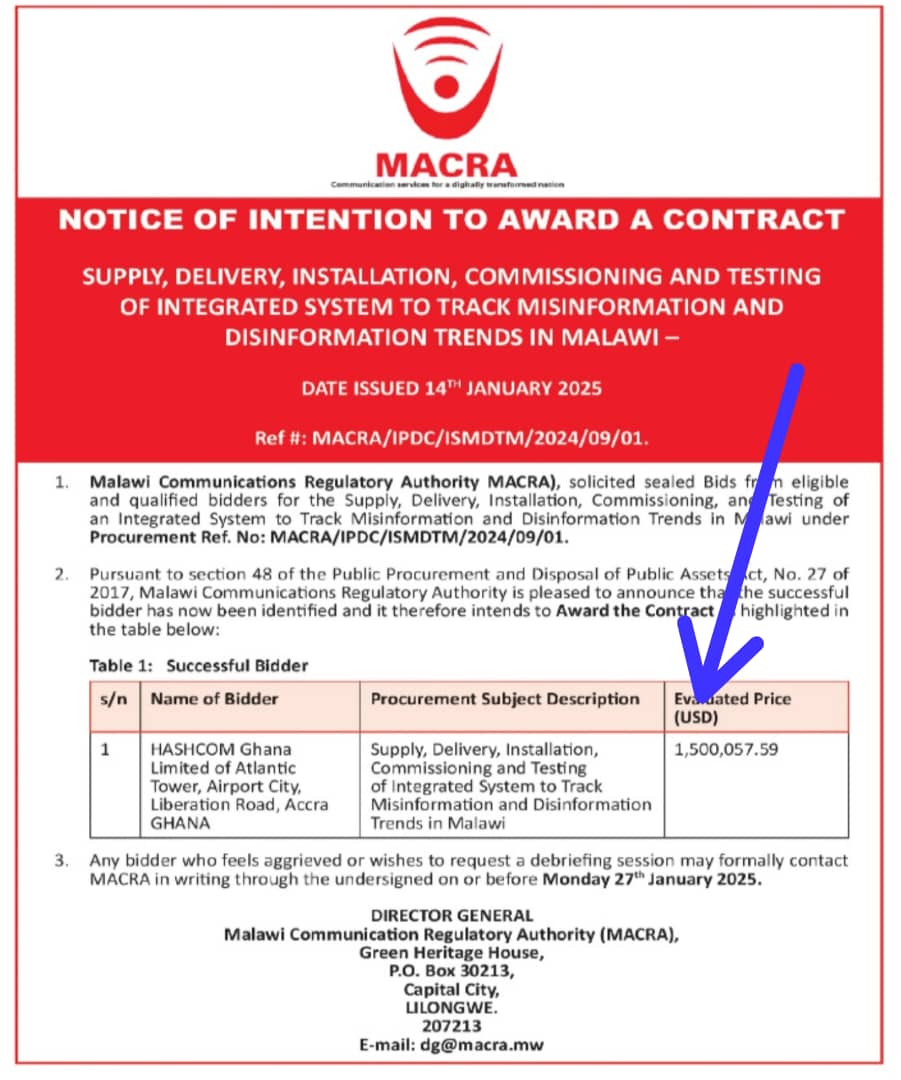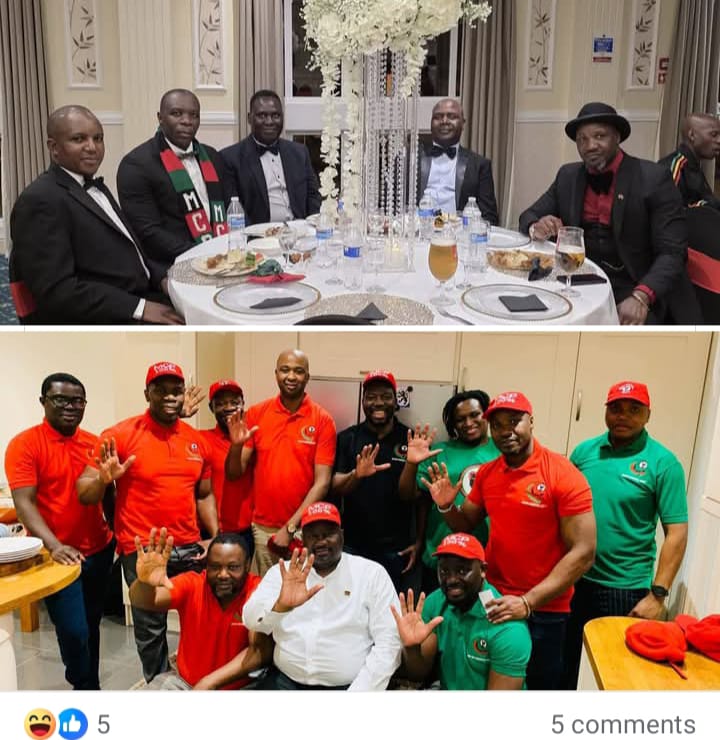By Burnett Munthali
In this interview, social commentator Jones Gadama shares his thoughts on the Malawian government’s controversial decision to allocate 5 billion Kwacha towards targeting Bakili Muluzi TV amidst significant national challenges.
Burnett Munthali: How do you view the decision to allocate 5 billion Kwacha towards targeting Bakili Muluzi TV, especially considering the pressing issues Malawians are facing, such as hunger and fuel shortages?
Jones Gadama:
The decision is appalling, to say the least. At a time when Malawians are grappling with widespread hunger, fuel shortages, and an overwhelmed healthcare system, spending such a vast amount on silencing a media platform is a clear misplacement of priorities. It reflects a government disconnected from the people’s realities.
Burnett Munthali: Do you believe the government’s focus on silencing media platforms like Bakili Muluzi TV is an effective way to address public dissent and political opposition?
Jones Gadama:
No, it’s not effective—it’s counterproductive. Silencing media platforms undermines democracy and freedom of speech, which are crucial for holding those in power accountable. Instead of addressing dissent, it often fuels greater public dissatisfaction and erodes trust in leadership.
Burnett Munthali: What impact could the 5 billion Kwacha allocation have on the credibility and trustworthiness of the government, especially with the public facing significant hardships?
Jones Gadama:
This allocation will undoubtedly damage the government’s credibility. It will be perceived as an attempt to suppress free speech and silence critics. With the public already facing immense hardships, such decisions only deepen the trust deficit between the government and its citizens.
Burnett Munthali: What are your thoughts on the government’s choice to engage a foreign company, HASHCOM from Ghana, rather than local solutions to deal with Bakili Muluzi TV?
Jones Gadama:
Engaging a foreign company raises serious concerns. It undermines local expertise and resources, suggesting a lack of confidence in homegrown solutions. Furthermore, it opens the door to foreign interference in our internal affairs, which is troubling for national sovereignty.
Burnett Munthali: Given the current economic challenges in Malawi, do you think it is justifiable for the government to prioritize controlling media platforms over addressing more urgent matters?
Jones Gadama:
Not at all. Prioritizing media control over urgent issues like healthcare and food security is indefensible. The government’s focus should be on alleviating the suffering of Malawians, not on silencing dissenting voices.
Burnett Munthali: Bakili Muluzi TV has raised issues about government corruption and mismanagement. Do you think the government is attempting to stifle free speech and public discourse through this move?
Jones Gadama:
Absolutely. The government’s actions appear to be a direct response to the criticisms aired by Bakili Muluzi TV. This is a blatant attempt to stifle free speech and suppress public discourse. It sends a worrying signal about the government’s tolerance for dissent.
Burnett Munthali: How does this decision impact the principles of democracy and freedom of speech in Malawi, particularly regarding the role of media in holding those in power accountable?
Jones Gadama:
This decision strikes at the heart of democracy and freedom of speech. A free and independent media is vital for holding power to account. By targeting Bakili Muluzi TV, the government risks undermining these principles, setting a dangerous precedent for authoritarianism.
Burnett Munthali: Do you foresee any long-term consequences for the government’s reputation and relationship with the public if the 5 billion Kwacha project is carried out during this time of crisis?
Jones Gadama:
Yes, the repercussions will be significant. The government will be viewed as authoritarian, prioritizing self-preservation over public welfare. This could lead to widespread public disillusionment and long-term damage to its reputation and legitimacy.
Burnett Munthali: How do you think the international community will view the government’s actions in terms of its commitment to democratic values and human rights?
Jones Gadama:
The international community will likely view this move with concern. Suppressing free speech and targeting media outlets are red flags for democratic backsliding. Such actions can strain relationships with international partners and harm Malawi’s reputation on the global stage.
Burnett Munthali: Finally, what do you think the government should focus on instead of spending vast sums to target media outlets like Bakili Muluzi TV?
Jones Gadama:
The government should redirect its focus to the issues that truly matter—hunger, healthcare, and economic development. Investing in infrastructure, creating jobs, and improving public services will have a far greater impact on the country’s well-being than silencing critics. It’s time for the government to prioritize the people over political interests.
Burnett Munthali: Thank you, Jones, for sharing your perspective.
Jones Gadama:
Thank you for the opportunity. I hope these insights contribute to a meaningful dialogue about the future of our nation.




